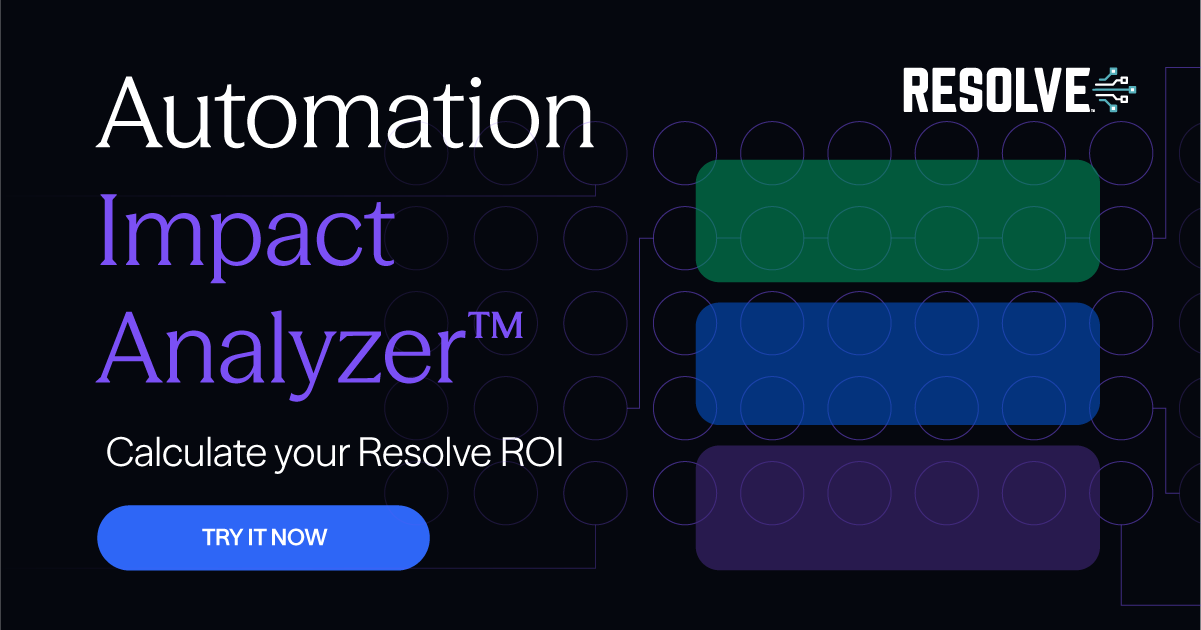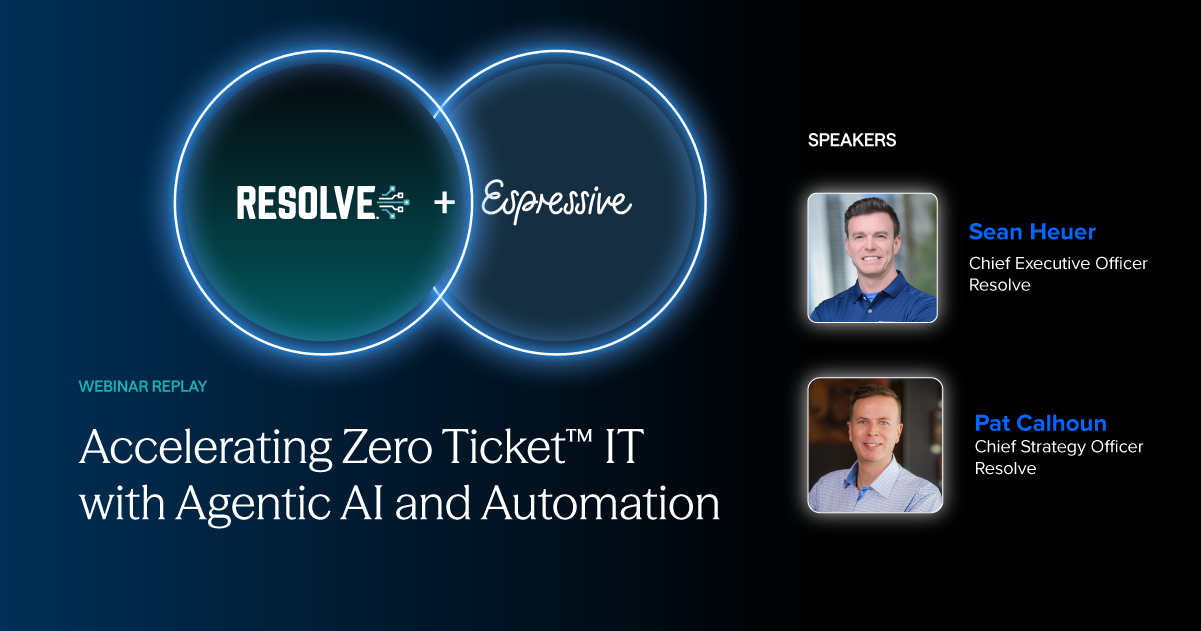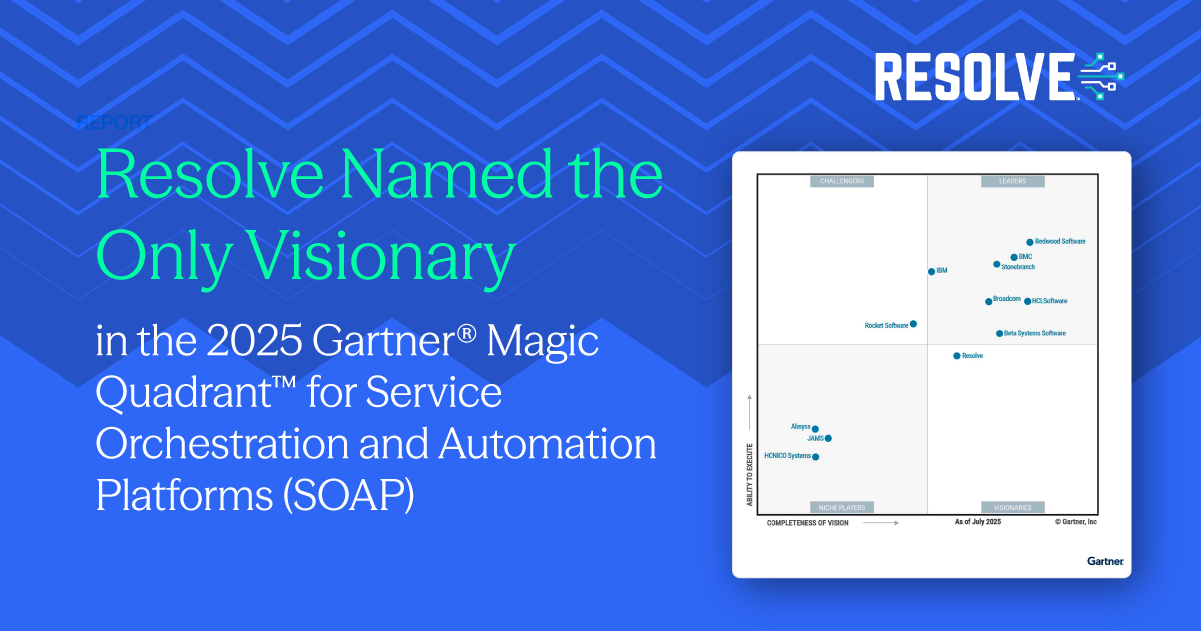
From Ticket Chasers to Trailblazers: Building a Proactive IT Culture
Subscribe to receive the latest content and invites to your inbox.
You know the drill.
The service desk queue refreshes, another tsunami of tickets floods in, and your team gears up for another deep, deep dive. Resolution times are king, SLA compliance is queen, and the more tickets you churn through, the more you’re celebrated as a hero of the help desk.
Does this sound familiar to you? That’s ticket-centric culture for you. A ‘magical’ realm where success is measured by how quickly you can put out fires instead of how many you can prevent from catching in the first place.
The problem with rewarding reactivity is that it’s a mindset holding organizations back. The future belongs to cultures that embrace Zero Ticket IT™: a way of doing things that’s built on prevention, automation, and continuous improvement. It’s not reactive IT; it’s proactive IT.
How Ticket-Centric Culture Entered the Picture
Ticket-centric thinking didn’t happen by accident. For many years, ITIL best practices and traditional service desk KPIs taught us to value speed and throughput above all else. Close tickets fast, meet your SLAs, clear the queue, high-five your teammates, and call it a day.
This setup actually made a lot of sense in the pre-automation era. A high volume of resolved tickets proved your team’s value, while fast resolutions kept users happy. Over time, “hero culture” grew around the support specialists who could swoop in and solve problems on the spot.
However, now that automation is on the scene, the metrics that once measured efficiency have impeded true IT success. More tickets become a sign of productivity, firefighting earns praise while prevention goes unnoticed, and short-term fixes take precedence over root-cause elimination. The result is an ingrained cycle of reactivity that drains resources and stifles innovation, which makes proactive IT difficult, if not impossible, to achieve.
The Cost of Ticket-Centric Culture
The broadest issue with being ticket-centric is that constantly context-switching between issues leaves no bandwidth for strategic work. The endless treadmill of repetitive incidents wears down even the most committed teams, and quick fixes crowd out long-term resilience projects.
Worst of all, metrics like SLA compliance don’t necessarily translate to better uptime, customer experience, or cost efficiency. If your team is busy but your business outcomes aren’t improving, it’s a sign your culture needs a reset.
What Proactive IT Looks Like
Zero Ticket IT is the ultimate plot twist for organizations that are focused on tickets. Instead of measuring how quickly you react, it measures how often you never had to. It focuses on preventing incidents before they happen, automating known issues and requests, using AI agents to detect, diagnose, and remediate, and continuously refining workflows based on historical data. Success is a quiet queue, rather than a cleared queue, in a truly proactive IT culture.
The Four Pillars of a Zero Ticket-Centric Culture
- Prevention-First Mindset: Firefighting may feel heroic, but designing systems to prevent the fire in the first place is far more valuable. Teams that eliminate root causes, track the tickets prevented alongside the tickets resolved, and share prevention wins begin shifting what gets celebrated.
- Intelligent Automation Everywhere: AI-powered agents like RITA intercept, diagnose, and resolve issues before a ticket exists, while builders like Jarvis enable fast, low-code workflow creation for high-volume tasks like password resets or software installs.
- Cross-Functional Collaboration: A proactive IT culture breaks down silos between your service desk, infrastructure, AIOps, and more to share incident patterns, unify data, and jointly prioritize automation. This approach also grants a holistic, 360-degree view of your organization and, ultimately, your customers.
- Metrics That Matter: Shifting from resolution time to metrics like ticket deflection, MTTR reduction, user satisfaction, and automation ROI ensures that prevention is both visible and valued, heightening its profile and further enabling a proactive cultural shift.
READ MORE: RITA: The Chatbot Alternative That Doesn’t Waste Your Time
Ticket-Centric vs. Proactive IT: The Ultimate Shift
The path to a proactive IT culture starts with assessing your current state. The Zero Ticket IT Scorecard is a simple way to benchmark maturity across automation, orchestration, and governance. From there, Zero Ticket and culture advocates can target high-volume, low-complexity issues for automation to create immediate relief and momentum.
Give the scorecard a try and see where you land!
Additionally, making this shift means recognizing and celebrating prevention as much as resolution, and making sure leadership understands how proactive metrics better align with improved customer experience and a stronger bottom line.
Finally, embed new habits through regular retrospectives to identify additional automation opportunities and refine prevention strategies. The key to Zero Ticket and proactive IT is to remember that it’s a continuous effort, not a one-and-done achievement.
Why Proactive IT Matters for Business
Proactive, Zero Ticket IT helps every team and delivers real business value. Reduced downtime means issues are prevented or resolved before they escalate. Lower costs come from reduced ITSM licensing, support overhead, and manual effort. Employees are happier, from IT staff freed from constant firefighting to end users enjoying uninterrupted work.
Most importantly, proactive IT creates room for innovation, enabling IT to contribute crucial governance to strategic initiatives. Over time, this cultural shift creates a virtuous cycle: better experiences lead to fewer issues, which frees up more time for improvements, which leads to even better experiences.
READ MORE: The Cost of Waiting: Why Operationalizing AI in IT Can’t Be Delayed Any Longer
Build Your Proactive IT Culture Today
Ticket-centric culture was built for a different era. Today, the victors are the organizations that can prevent issues instead of just respond to them. Shifting to a proactive IT culture isn’t about flipping a switch; it’s about changing mindsets, metrics, and habits, and using the right tools to reinforce them. With Resolve’s AI agents and our Zero Ticket framework, you can chart a path forward, and reap the benefits of a quieter, more resilient IT environment.
Ready to see how proactive your IT culture can be?
→ Request a Demo
→ Read The Zero Ticket Future Manifesto






